First Series of International Workshop on
(3SCity-E2C) Building Software Services in Smart City through
Edge-to-Cloud orchestration
in conjunction with The 21thIEEE International Conference on Mobile Data Management, Versailles, France
June 30, 2020
Download Call For Paper (CFP-3SCity-E2C 2020 Workshop)
Notification about Corona Virus (COVID-19) by the organizer of the IEEE MDM 2020 conference
Note that for each content you used on this page, please cite the below information in your reference list.
Reference template: Sinaeepourfard, Amir, “3SCity-E2C: Building Software Services in Smart City through Edge-to-Cloud orchestration,” 1st Int’l. Wksp. Building Software Services in Smart City through Edge-to-Cloud orchestration, 2020; https://fmezen.no/3scity-e2c-workshop-2020/.
About IEEE MDM 2020 Conference:
The MDM series of conferences, since its debut in 1999, has established itself as a prestigious forum for the exchange of innovative and significant research results in mobile data management. The conference provides unique opportunities to bring researchers, engineers, and practitioners together to explore new ideas, techniques, and tools, and exchange experiences. The conference this year is hosted by the Computer Science department of the University of Versailles.
Comprising both research and industry tracks, it serves as an important bridge between academic researchers and industry researchers. Along with the presentations of research publications, it also serves as a meeting place for technical demonstrations (demos), workshops, advanced seminars, panel discussions as well as a Ph.D. forum and an Industrial forum to cater to Ph.D. students and industrial developers.
The conference focuses on research contributions in data management in mobile, ubiquitous, and pervasive computing.
About First Edition of IEEE 3SCity-E2C 2020 Workshop:
The first international 3SCity-E2C workshop is a leading venue for academics and practitioners to present and discuss their research on evidence-based data and software engineering, and its implications for data and software practice. Based on this objective, smart cities are an excellent example of a contribution between ICT, data architectures, software developers, citizens, and their business requirements, and city manager policies. Those contribution challenges make several opportunities to discuss building Software Services as well as Large-Scale Data Management in smart cities through novel ICT technologies, such as Edge-to-Cloud computing orchestration. In addition, this workshop lightly highlights another challenge to build efficient software services in a city such as ICT architecture and platform, and its data management and cybersecurity issues.
All accepted papers will be published in the proceedings of the 2020 International Conference on Mobile Data Management and included in the IEEE Xplore® digital library.
The challenge
-
Objectives:
Design, implementation, and operation of integral solutions for “Large-Scale Data Management to build Software Services in Smart Cities through Edge-to-Cloud orchestration.”
-
Challenges:
The stress of urban growth and citizens’ requirements makes it complex to build software services in a smart city. Some key points of these complexities go beyond large-scale IoT management in a smart city in terms of management of data and IoT resources as well as assessment and mitigation cybersecurity threats/risks to validate security requirements for building software services in a smart city.
-
Introduction:
As cities change and overgrow, smart city services contribute potent tools for enhancing livability, sustainability, and overall efficiency. Internet of Things (IoT) technology is considered as the heart of a smart city environment to develop the lives of the citizens within it. The IoT-enabled smart city may help to reroute traffic around congestion in real-time, automatically schedule repairs for failed infrastructure like street lighting, and intelligently organize energy and pollution consumption right across the constructed environment. It can defend citizens and businesses from violations as well as safeguard vulnerable citizens in their homes.
By 2021, Gartner envisages that 25 billion IoT devices will be connected and in use as well as assuming prominent business possibilities. However, to benefit fully from capabilities of IoT and thriving innovations in application domains such as applications of the energy management system (EMS), human health applications, etc. in the smart city, it is critical to facilitate the creation and operation of large-scale IoT systems management in the smart city. IoT systems are known to be complex, large scale, and distributed. Coordinated behavior across IoT, edge, and cloud infrastructures require to be organized and structured. Furthermore, the trustworthiness of such systems is critical, ranging from business-critical to safety-critical. The capacity to continuously grow and conform to these systems is crucial to assure and develop their trustworthiness, quality, and user experience.
Edge-to-Cloud orchestration can offer a splendid solution for building Software Services across the city as well as management of the large-scale IoT in smart cities. With regard to focus on designing large-scale software services, we should consider data as the most precious resource for service development in smart cities. Without data, services cannot be launched for smart city citizens. Therefore, to build efficient smart city services, we should consider large-scale IoT data management architecture from data collection to data consumption as well as assessment and mitigation cybersecurity threats/risks to validate security requirements for building software services in the smart city.
Building Software Services in Smart City through Edge-to-Cloud orchestration (3SC-E2C) workshop focuses on software-assisted environments for urban environments. We welcome strong papers exploring the theme of “Large-Scale Data Management to build Software Services in Smart Cities” mainly concentrating on Edge-to-Cloud orchestration. This workshop brings together researchers, developers, practitioners, and stakeholders interested in the advances and applications for smart cities. In addition to this, we look forward to novel proposals for the large-scale management of data, software/service, and cybersecurity in the smart city environment.
Organization
Organizing Committee
Workshop Organizer and Idea Creator
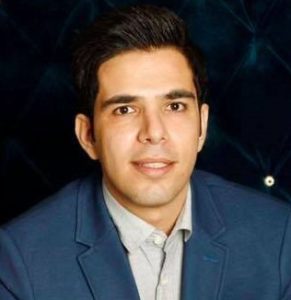
Ask him about “Data/Software Service Management applied in IoT/Edge-to-Cloud Computing orchestration/Smart Cities,” and “Large-Scale ICT/IoT networks management of Smart Cities”
Amir Sinaeepourfard, Ph.D., is a “research associate” and a “Postdoctoral candidate” at the Norwegian University of Science and Technology (NTNU), Norway. He received a Ph.D. in Computer Architecture (focused on data and software management) with First Class Honors (Excellent CumLaude) from Technical University of Catalonia (UPC) in Spain, in 2018. He was a fellow of the FI-DGR fellowship program of the Generalitat de Catalunya in Spain during his Ph.D. studies. Based on his Ph.D. studies, he proposed several novel contributions for Large-Scale ICT management in smart cities through Edge-to-Cloud orchestration, e.g., “D2C-DM: Distributed-to-Centralized Data Management,” and “E2CaaS: Edge-to-Cloud-as-a-Service Model for Building Software Services.” One of his publications, based on his Ph.D. thesis, received the IFIP Med-Hoc-Net paper of the “best paper year award” for 2016. He has significant hands-on experiences in both academic research and organizing scientific events/seminars/workshops/conferences in his field. He is the “Workshop Organizer and Idea Creator” of a series of “3SCity-E2C: Building Software Services in Smart City through Edge-to-Cloud Orchestration international workshops,” including “3SCity-E2C” and “D2C-ML&AI / Special D2C-ML&AI Conference Track,” “Intelligent Resource Management Mechanism for Service Execution of Large-Scale IoT Networks,” and “The ICT in Smart City Day event (ICT-SCity).” His Google Scholar citation as of March 2021 was 229, and his H-index was 10. He has been quite well-experienced in leadership activities in academia and industries (such as the “e-banking manager,” “technical supervisor/leader of master and bachelor students”). He is an active member of several European projects and consortiums for technical collaboration/responsibilities of several tasks, reports, deliverables, and publications (such as “H2020 mF2C: Towards an Open, Secure, Decentralized and Coordinated Fog-to-Cloud Management Ecosystem“), the Research Council of Norway (such as ZEN: Zero Emission Neighbourhood), and the Spanish Government Grant (such as FI-DGR fellowship program of the Generalitat de Catalunya).
His current research interest includes “Smart Cities, “IoT,” “Large-Scale IoT Management,” “Big Data Management,” “Cloud/Fog/Edge Computing,” “Data and Software Management (including Centralized and Distributed).”
His publication lists> Google Scholar
Workshop Committee Members
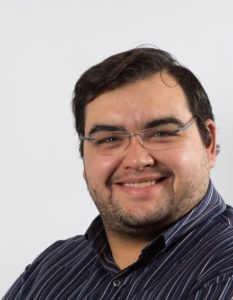
Ask him about “SDN” and “Mobile Computing”
Antonio J. Jara (CEO), Ph.D. founder of HOP Ubiquitous S.L. (www.hopu.eu), vice-chair of the IEEE Communications Society Internet of Things Technical Committee, and adjoint scientifique in the University of Applied Sciences Western Switzerland. He did his Ph.D. (Cum Laude) at the University of Murcia (UMU), Spain. These Ph.D. results present a novel way to connect objects to Internet-enabled platforms in an easy, secure and scalable way. He also carried out an MBA and entrepreneurship formation in the ENAE business school and UCAM (2012). He received entrepreneurship awards from ENAE (sponsored by SabadellCAM financial services), emprendeGo (sponsored by Spanish government), IPSO Alliance Award (Sponsored by Google) for its disruptive innovation in the IoT, selected and mentored by the acceleration program FABULOUS (part of the FIWARE EU project). Antonio Jara as part of HOP Ubiquitous is focused on the Smart Cities market with solutions for citizens engagements, tourism, active participation, physical web and environmental monitoring (air quality sensors). Antonio Jara has also participated in over 100 international events about Internet of Things as Speaker, over 100 international publications/papers (~4000 citations and impact factor h=31), he holds several patents in the IoT domain and finally he has advised in the IoT domain to companies such as Microsoft and Fujitsu.
His current research interest includes IoT, Smart Cities, Future Internet, IPv6, blockchain Applied in IoT, Mobile Computing, Emergency Services, Software-Defined Networking (SDN), and Software Maintenance.
His publication lists> Google Scholar
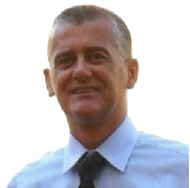
Ask him about “Fog/Edge Computing” and “Cybersecurity & Privacy”
Antonio Salis, is R&D Project manager in Engineering Sardegna. Since 1988 he has been working in software and integration projects, where he played several roles, from developer to system architect and technical lead, with TECHSO (IBM participated), ST Microelectronics, Video On-Line, Telecom Italia, and Tiscali, where acted as Corporate Project Manager and responsible for Quality, Information Security and Data Privacy Compliance. Previously involved in the Contrail EU FP7 Project for Open Computing Infrastructures for elastic services, currently acting as Exploitation and Dissemination Manager in the mF2C EU H2020 Towards an Open, Secure, Decentralized and Coordinated Fog-to-Cloud Management Ecosystem. Program Chair in the 2nd and 3rd edition of the F2C-DP Workshops in Euro-Par 2018 and 2019, Vice-Chair in the Managed Fog-to-Cloud (mF2C) Workshop in 11. IEEE/ACM International Conference on Utility and Cloud Computing (UCC 2018). He received a master degree in Computer Science from the University of Pisa.
His current research interest includes Cloud, Fog/Edge computing, IoT, Big Data & Machine Learning, Cybersecurity & Privacy, leveraging my experience in Information Security and Privacy in Internet and Telco enterprise companies, and proposing and supporting Digital Transformation projects.
His publication lists> https://dblp.uni-trier.de/pers/hd/s/Salis:Antonio
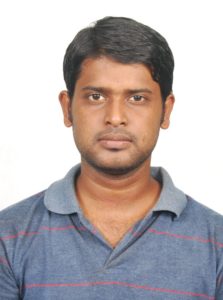
Ask him about “Fog/Edge Computing” and “Cybersecurity”
Deepak Puthal, Ph.D. is a Lecturer at the School of Computing, Newcastle University, UK. Prior to this position, he was a Lecturer at University of Technology Sydney (UTS), Australia. His research spans several areas, such as Internet of Things, Edge/Fog Computing, cybersecurity and blockchain. He serves on the editorial boards of top-quality international journals including IEEE Transactions on Big Data, IEEE Consumer Electronics Magazine, Computers & Electrical Engineering (Elsevier), International Journal of Communication Systems (John Wiley & Sons), Internet Technology Letters (John Wiley & Sons). He has received several recognitions and best paper awards from IEEE.
His current research interest includes Cybersecurity, IoT, Distributed Computing, and Edge/Fog Computing.
His publication lists> Google Scholar
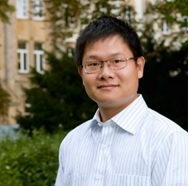
Ask him about “Software Engineering” and “IoT Security and Privacy”
Phu H. Nguyen, Ph.D. is a Research Scientist at the Department of Software and Service Innovation, SINTEF, Oslo, Norway. He conducts research in Software Engineering, with a focus on tools and methodologies for software development and operation of heterogeneous and autonomous, yet secure and privacy-aware systems spanning across the Cloud, the Edge, and the IoT. He has experience from working in international research projects in the EU as well as research and development projects with industry. He has a very international education and research background, from Vietnam (BSc) to the Netherlands (MSc), Luxembourg (Ph.D.), and Norway. Phu is active in contributing to the peer-review tasks of high-impact journals such as IEEE Transactions on Software Engineering (TSE), Springer Journal on Software and System Modeling (SoSyM), Elsevier Journal on Information and Software Technology (INFSOF), Journal of Systems and Software (JSS) as well as conferences and workshops. He is a PC member of the International Workshop on Designing and Measuring CyberSecurity in Software Architecture (DeMeSSA 2019), Co-PC Chair of the 11th A-TEST (Automated Testing) workshop 2020. He was awarded a certificate for exceptional contributions, support, and commitment in the organization of the Sixth IEEE International Conference on Software Testing, Verification and Validation (ICST 2013), IBM award for displaying exceptional personal dedication, teamwork and contribution to the ibm.com project 2007, and the first prize at the LuxDoc Science Slam 2014 for communicating research to the public.
His current research interest includes IoT, Microservices Architecture, Cloud to Fog/Edge, C-ITS, and IoT Security and Privacy.
His publication lists> Google Scholar
Scientific Committee
- Dirk Ahlers, Norwegian University of Science and Technology (NTNU), Norway
- Amirhosein Taherkordi, Universitetet i Oslo (UiO), Norway
- Jens Jensen, UK Research and Innovation-Science and Technology Facilities Council (UKRI-STFC), UK
- Shuaib Siddiqui, i2CAT Foundation, Spain
- Alexander Norta, TalTech, Estonia
- Octavio Loyola-González, Tecnologico de Monterrey, Mexico
- Shehenaz Shaik, Auburn University, USA
- Suman Sankar Bhunia, PwC Inc., India
- Vitor Barbosa Souza, Universidade Federal de Viçosa (UFV), Brazil
- Mona Ghassemian, BT Telecommunications, UK
- Saad Qaisar, National University of Sciences and Technology (NUST), Pakistan
- Ali Dorri, Queensland University of Technology (QUT), Australia
- Souvik Sengupta, Universitat Politècnica de Catalunya (UPC), Spain
- Gowri Sankar Ramachandran, University of Southern California, USA
- Sarang Kahvazadeh, Centre Tecnològic de Telecomunicacions de Catalunya (CTTC), Spain
- Qaisar Shafi, National University of Sciences and Technology (NUST), Pakistan
Keynote speakers
Industry Talk



Phu H. Nguyen, Ph.D., Sintef Digital, Oslo, Norway
Title of Keynote Speaker: “Edge-to-Cloud orchestration: a case study of building a scalable Cooperative-Intelligent Transport System (C-ITS)”
Ask him about “Software Engineering” and “IoT Security and Privacy”
Phu H. Nguyen, Ph.D. is a Research Scientist at the Department of Software and Service Innovation, SINTEF, Oslo, Norway. He conducts research in Software Engineering, with a focus on tools and methodologies for software development and operation of heterogeneous and autonomous, yet secure and privacy-aware systems spanning across the Cloud, the Edge, and the IoT. He has experience from working in international research projects in the EU as well as research and development projects with industry. He has a very international education and research background, from Vietnam (BSc) to the Netherlands (MSc), Luxembourg (Ph.D.), and Norway. Phu is active in contributing to the peer-review tasks of high-impact journals such as IEEE Transactions on Software Engineering (TSE), Springer Journal on Software and System Modeling (SoSyM), Elsevier Journal on Information and Software Technology (INFSOF), Journal of Systems and Software (JSS) as well as conferences and workshops. He is a PC member of the International Workshop on Designing and Measuring CyberSecurity in Software Architecture (DeMeSSA 2019), Co-PC Chair of the 11th A-TEST (Automated Testing) workshop 2020. He was awarded a certificate for exceptional contributions, support, and commitment in the organization of the Sixth IEEE International Conference on Software Testing, Verification and Validation (ICST 2013), IBM award for displaying exceptional personal dedication, teamwork and contribution to the ibm.com project 2007, and the first prize at the LuxDoc Science Slam 2014 for communicating research to the public.
His current research interest includes IoT, Microservices Architecture, Cloud to Fog/Edge, C-ITS, and IoT Security and Privacy.
His publication lists> Google Scholar
Title: “Edge-to-Cloud orchestration: a case study of building a scalable Cooperative-Intelligent Transport System (C-ITS)”
Researcher Talk
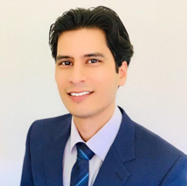

Ali Dorri, School of Electrical Engineering and Computer Science at Queensland University of Technology (QUT), Brisbane, Australia
Title of Keynote Speaker: “Blockchain: A distributed secure and anonymous solution for smart cities”
Ask him about “Blockchain Applied in IoT” and “Smart Grid”
Young Researcher Talk
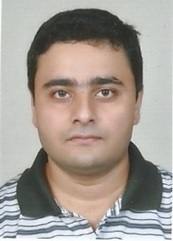

Souvik Sengupta, Department of Computer Architecture (DAC), Universitat Politècnica de Catalunya (UPC), Barcelona, Spain
Title of Keynote Speaker: “Prospect of Federated Learning in the combined Fog-to-Cloud Computing paradigm”
Ask him about “Fog/Edge Computing” and “Database Management”
Souvik is a Researcher of CRAAX Lab, Universitat Politechnica da Catalunya (UPC BarcelonaTech) and currently pursuing PhD from the Department of Computer Architecture (DAC) at the UPC BarcelonaTech. He is working in the area of Resource Management strategy in Fog-to-Cloud computing by using Machine Learning strategies. He has a fellowship from FPI, which is provided by the Ministry of Science and Innovation, Spain. In the past he had been awarded by the Erasmus Mundus Scholarship, which has been provided by the European Commission for the “c-LINK-centre of excellence for Learning, Innovation, Networking and Knowledge”, Erasmus Mundus Action 2 project (372242-1-2012-1-UK-ERA MUNDUS-EMA21).
His current research interest includes Fog/Edge computing, Cloud Computing, IoT, Database Management, and Machine Learning
His publication lists: https://orcid.org/0000-0002-0056-1540
Partners
NTNU – Norwegian University of Science and Technology


NTNU is a university with an international focus, with headquarters in Trondheim and campuses in Ålesund and Gjøvik.
NTNU has a main profile in science and technology, a variety of programs of professional study, and great academic breadth that also includes the humanities, social sciences, economics, medicine, health sciences, educational science, architecture, entrepreneurship, art disciplines, and artistic activities.
ZEN – Zero Emission Neighbourhoods in Smart Cities


The ZEN Research Centre conducts research on Zero-Emission Neighbourhoods (ZEN) in smart cities.
The main goal is to develop solutions for future buildings and neighbourhoods with no greenhouse gas emissions and thereby contribute to a low carbon society.
Submission
Building Software Services in Smart City through Edge-to-Cloud orchestration (3SC-E2C) workshop focuses on software-assisted environments for urban environments. We welcome strong papers exploring the theme of “Large-Scale Data Management to build Software Services in Smart Cities” mainly concentrating on Edge-to-Cloud orchestration. This workshop brings together researchers, developers, practitioners, and stakeholders interested in the advances and applications for smart cities. In addition to this, we look forward to novel proposals for the large-scale management of data, software/service, and cybersecurity in the smart city environment.
Topics
The workshop provides a forum to discuss the theoretical foundations and original technical contributions of building Software Services through Large-Scale data management architecture in the smart cities based on edge-to-cloud computing solutions, by bringing together industry, academia, engineers, and researchers. We invite submissions of the unpublished work on the following topics (but not limited to):
- Data Management Technologies, Architecture, and Platforms through Edge-to-Cloud computing networks in Smart Cities;
- ICT Technologies, Architecture, and Platforms through Edge-to-Cloud computing networks in Smart Cities;
- Innovative services in Edge-to-Cloud computing networks in smart cities, particularly IoT, smart sensing, and Artificial Intelligence technology;
- Quality of Edge-to-Cloud services in smart cities;
- Edge-based or Edge-to-Cloud based real-time applications in smart cities;
- Software of Edge Computing and Edge-to-Cloud computing networks in smart cities;
- Software-Defined Networking (SDN) for Edge computing and Edge-to-Cloud computing networks in smart cities;
- Load balancing and service selection at the Edge computing networks in smart cities;
- Cybersecurity challenges and solutions for threat and attack detection in Large-Scale Smart City environment through Edge-to-Cloud computing networks;
- Federated Learning through Edge-to-Cloud computing networks.
Important dates
- Paper Submission Deadline:
March 22, 2020,April 5, 2020, April 26, 2020, 23:59 (anywhere on the earth) FIRM DEADLINE - Notification of Paper Acceptance: May 18, 2020
- Camera-ready Deadline: May 29, 2020 FIRM DEADLINE
Submission instruction
3SCity-E2C proceedings will be published in the combined 21st IEEE International Conference on Mobile Data Management (MDM) 2020 proceedings and will be submitted to IEEE Xplore® digital library. The following paper categories are welcome:
- All papers must be original and not simultaneously submitted to another journal or conference;
- All papers need to be submitted electronically in PDF format through EasyChair (https://easychair.org/conferences/?conf=3scitye2c);
- Papers must be formatted for the 8.5×11-inch paper;
- The length of the paper must be no more than 6 pages in the IEEE double-column format (10-pt font), including references and everything;
- The paper format must follow the IEEE template, https://www.ieee.org/conferences/publishing/templates.html;
- Papers should neither have been published elsewhere nor being currently under review by another conference or journal;
- The reviews will be single-blind;
- Each submitted paper will review by three reviewers, including TPC and Committee members;
- At least one of the authors of every accepted paper must register and present the paper at the workshop;
- Camera-ready instruction is available on http://mdmconferences.org/mdm2020/Camera-ready%20instruction.html;
- Registration instruction is available on http://mdmconferences.org/mdm2020/registration.html.
Program
Start the video-workshop at 11:00 am – Central European Time (CET), 30 June 2020 (Tuesday)
11:00 – 11.15 Welcome message by the Program Chair (Amir Sinaeepourfard, Norwegian University of Science and Technology (NTNU), Norway)
Session 1> Vehicular Networks and Smart Transportation System
11.15 – 11.45 Keynote Talk 1
Presenter: Phu Nguyen, SINTEF, Norway
Title: “Edge-to-Cloud orchestration: a case study of building a scalable Cooperative-Intelligent Transport System (C-ITS)”
Abstract: The development of Cooperative Intelligent Transport Systems (C-ITS) was primarily driven by applications for improving traffic safety and efficiency. More recently, C-ITS applications have focused on not only improving traffic safety and efficiency but also making better use of the digitisation of transport under Cooperative, Connected, and Automated Mobility (CCAM). Indeed, the vision of C-ITS is beyond addressing road safety issues. CCAM is meant for enhanced traffic management and even supporting various business-driven “ecosystems” around C-ITS. For example, besides traffic safety and efficiency scenarios such as intersection collision warning, overtaking warning, cooperative lane change, there will be “business-oriented” scenarios such as miles-traveled-fees, a request for cheap fuel, requirements for customs declarations, diesel bans in city streets and offers for charging stations. This talk presents the challenges and possible solutions of Edge-to-Cloud orchestration in building a scalable C-ITS platform that can realise the vision of CCAM and support for “ecosystems” around C-ITS.
11.45 – 12.00 Accepted Paper Presentation
Title: “A Smart Fog-to-Cloud System in Airport: Challenges and Lessons Learnt”
Authors: Antonio Salis (Engineering Sardegna SRL, Italy), Jens Jensen(UK Research and Innovation-Science and Technology Facilities Council, UK)
Abstract: Airports are one relevant environment in the smart cities implementation. Recent progresses in IoT have made it possible to develop advanced real-time services and assistance tools for travelers, making use of fog computing as an architectural model that places itself between the Cloud and the IoT, in the Cloud-to-Things Continuum, fulfilling requirements for strict real-time responses. The main tool exploits the concept of proximity marketing and
covers the essential experience through the airport onto the flight, but also allows travelers to spend their waiting time by discovering the facilities of the airport, supported by a recommendation system using machine learning. The system provides also the airport planners an aggregated and anonymized view, like heat maps, of travelers behavior that highlight bottlenecks in the infrastructure, or highlight situations that require intervention, such as emergencies. The app in based on Android and makes use of the fog-to-cloud platform developed by the Horizon2020-funded mF2C project,
giving evidence that the adoption of the fog-to-cloud approach brings significant benefits in terms of performance and
optimization of resource usage, giving an objective evidence of the impact of the mF2C framework.
Keywords—Cloud computing, fog computing, fog-to-cloud, distributed systems, IoT, machine learning, proximity marketing
12.00 – 12.30 Lunch break
Session 2> Data Management and Machine Learning
12.30 – 13.00 Keynote talk 2
Title: “Prospect of Federated Learning in the combined Fog-to-Cloud Computing paradigm”
Presenter: Souvik Sengupta, Universitat Politècnica de Catalunya (UPC), Spain
Abstract: The rapid emergence of the Internet of Things (IoT) technology has significantly fueled up the development of ubiquitous computing, and driving the whole society into a new smart computing world. As a matter of course, every surrounding thing is getting connected with the network. Importantly, all of these connected devices are continuously capturing various events from the environments and generating a massive amount of data. Interestingly, the International Data Corporation (IDC), predicts that by 2025 more than forty-two (42) billions of various smart connected devices or things would be activated across the globe, and these devices would produce almost seventy-nine (79) zettabytes (ZB) of data in the same year [1]. Thus, managing those massive amounts of data and devices poses an enormous challenge for any existing computing system. Notably, one of the critical features of any modern smart computing system is to provide latency-sensitive context-aware services efficiently among the end-users. For ensuring this facility, it is essential to distribute the computation and secure storage facilities all over the network. Realizing this fact, Xavi et al. [2] proposed a coordinated and hierarchical Fog-to-Cloud (F2C) computing platform by integrating the Cloud, Fog, and IoT functionalities. One of the most significant nature of the F2C is that it helps to bring more intelligence on the verge of the network. Significantly, intelligence is closely related to the adaption of knowledge from history. Based on the learning from past incidents, a device can able to perform quick and wise action. Thus, in the F2C scenario, local data storing and processing with global coordination is essential for bringing the smartness at the end-users site. Therefore, Federated Learning [3] is going to play a crucial role in any large-scale distributed computing paradigm, i.e., F2C-enabled Smart Computing system. Local data processing – is the biggest advantage of the Federated Learning technique. As the data is locally processing, there is no further requirement to send the data to the centralized server. That means, the Federated Learning not only reduces the bandwidth consumption as well as ensures the currently coined-up data-privacy issues (ex. GDPR) [4].
In many aspects and scenarios, Federated Learning can be beneficial for the F2C, and it helps the F2C to keep its promises for bringing the smartness to the verge of the network. For example, in the real-time traffic management system to e-Health emergency services, Federated Learning can be productive for F2C. Especially for offering any real-time context-aware services, F2C can grant the better quality of facilities by adopting the Federated Learning techniques. Thus the adoption of the Federated Learning concept in the F2C is still in the infancy stage. So, many more aspects are still open to be addressed. In this talk, will focus on identifying the prospects and the open issues for implementing the Federated Learning concept in the combined and hierarchical Fog-to-Cloud (F2C) paradigm.
REFERENCES>
[1] M. Shirer and C. MacGillivray. (2019, jun) The growth in connected iot devices is expected to generate 79.4zb of data in 2025, according to a new idc
forecast. [Online]. Available: https://www.idc.com/getdoc.jsp?containerId=prUS45213219
[2] X. Masip-Bruin, E. Marın-Tordera, A. Juan-Ferrer, A. Queralt, A. Jukan, J. Garcia, D. Lezzi, J. Jensen, C. Cordeiro, A. Leckey et al., “mf2c: towards
a coordinated management of the iot-fog-cloud continuum,” in Proceedings of the 4th ACM MobiHoc Workshop on Experiences with the Design and
Implementation of Smart Objects. ACM, 2018, p. 8.
[3] H. B. McMahan, E. Moore, D. Ramage, S. Hampson et al., “Communication-efficient learning of deep networks from decentralized data,” arXiv preprint
arXiv:1602.05629, 2016.
[4] K. Bonawitz, H. Eichner, W. Grieskamp, D. Huba, A. Ingerman, V. Ivanov, C. Kiddon, J. Konecny, S. Mazzocchi, H. B. McMahan et al., “Towards
federated learning at scale: System design,” arXiv preprint arXiv:1902.01046, 2019.
13.00 – 13.15 Accepted Paper Presentation
Title: “A Cost Model for Data Discovery in Large-Scale ICT Networks of Smart Cities”
Authors: Torbjørn Soltvedt, Amir Sinaeepourfard, Dirk Ahlers (Norwegian University of Science and Technology (NTNU), Norway))
Abstract: A smart city with huge numbers of physical (e.g., sensors and actuators) and non-physical (e.g., external databases) data sources will continuously produce high amounts of massive city-data. Distributed data storage across the city may store the produced city-data. City managers through different update mechanisms may send the produced city-data from distributed data storage to centralized data storage (e.g., Cloud data storage). Hence, the data discovery issues are in a vital position in the smart city concepts because the produced city-data may exist in different data storage platforms from distributed to centralized data. In this paper, we will first present our proposed Distributed-to-Centralized Information and Communications Technology (D2C-ICT) architecture for the Zero Emission Neighborhoods (ZEN) center. This proposed D2C-ICT architecture can provide multiple facilities from the joined benefits of distributed and centralized technologies in smart cities. Second, we will show how the Multi-Attribute Utility Theory (MAUT) cost model can be beneficial to find the appropriate data for building city services across the different storage platforms on the city scale as well as can be applied in the ZEN center and its pilots.
Keywords—Smart City; Cost Model; Data Discovery; Distributed-to-Centralized ICT Architecture
13.15 – 13.30 Accepted Paper Presentation
Title: “Bridging MQTT and Kafka to support C-ITS: a feasibility study”
Authors: Åsmund Hugo, Brice Morin, Karl Svantorp (SINTEF, Norway)
Abstract: Nowadays, every vehicle is wirelessly connected, often by both itself and its passengers. The same goes for all the continuously growing amount of devices alongside the transportation infrastructure. This induces an abundance of data that can be used to direct traffic efficiently, optimize the transportation infrastructure, avoid accidents, lower emissions from transportation and so forth. To create coherence among the messages related to a Cooperative and Intelligent Transportation System (C-ITS), an ETSI message type standard has been developed. The next hurdle is how to facilitate receiving and processing millions of C-ITS messages in real-time.
We present a feasibility study on how these C-ITS messages can be received, processed and distributed. Our novel approach is to bridge C-ITS message types over MQTT, to Apache Kafka, with fault-tolerance, horizontal scalability and low latency. We have engineered both an MQTT-Kafka source connector and a Kafka-MQTT sink connector, by utilizing the Kafka Connector API. These facilitate an easy configurable topic mapping between MQTT and Kafka, from vehicles and road side units to a central application, and in the opposite direction. Our experiments with this bridging technology, performed on a modest desktop computer with a single instance Kafka setup, show the feasibility by managing to source and sink CAM messages with low latency.
Keywords—C-ITS, Kafka, Smart Mobility, MQTT, Distributed Message Delivery
Session 3> Security and Software Services Platform
13.30 – 14.00 Keynote talk 3
Title: “Blockchain: A distributed secure and anonymous solution for smart cities”
Presenter: Ali Dorri, Queensland University of Technology (QUT), Australia
Abstract: Smart city incorporates a broad range of sensors and devices that capture various aspects of the users’ day life and transfer the data to centralized service providers (SPs). The latter offer personalized services to the users which in turn increases user satisfaction and automates multiple everyday tasks. The huge volume of information collected by SPs may potentially compromise the user privacy as the SP can build a virtual profile about the user. Additionally, conventional centralized solutions are not scalable in network with millions of devices. Blockchain has received tremendous attention to address security, anonymity, and centralization challenges in smart cities. Blockchain is a distributed database that records transactions, i.e., communications between nodes, in the form of blocks. Appending new blocks to the blockchain involves following a consensus algorithm that ensures blockchain security and establishes a trusted network without relying on central authorities.
In this talk, I will discuss the core concepts and the key features of blockchain that made it attractive for smart cities. I will also discuss applications of blockchain in smart connected vehicles and energy management as representative applications of smart cities. Finally, I will discuss the challenges and limitations associated with adopting blockchain in smart cities.
14.00 – 14.15 Accepted Paper Presentation
Title: “A Novel Edge-to-Cloud-as-a-Service (E2CaaS) Model for Building Software Services in Smart Cities”
Authors: Jaro Robberechts (Ghent University, Belgium), Amir Sinaeepourfard (Norwegian University of Science and Technology (NTNU), Norway), Tom Goethals (Ghent University, Belgium), Bruno Volckaert (Ghent University, Belgium)
Abstract: The main goal of a smart city is to enhance the quality of life of its inhabitants by providing services using Information and Communications Technology (ICT) components in a city. ICT components include not only Internet of Things (IoT) data sources spread across the city, but also traditional non-IoT data sources. Managing all ICT components in a smart city can be challenging and results in many complexities. Consequently, there is a need for ICT management architectures. Traditional solutions are often based on a centralized ICT architecture using Cloud technologies. Recently, the number of ICT components, services, and their corresponding complexities are growing, leading to large-scale ICT architectures. Centralized Cloud solutions cannot cope with the ever-expanding demands of this kind of architectures. The limitations of the centralized approaches necessitate the design of a new ICT architecture, using distributed technologies, for every layer and element of the city. Many solutions for management from Edge-to-Cloud (E2C) through distributed technologies are forthcoming, including Decentralized-to-Centralized ICT (DC2C-ICT) and Distributed-to-Centralized ICT (D2C-ICT) architectures. The DC2C-ICT architecture and its components work on their own tasks and are solely communicating with a centralized platform. On the other hand, components of the D2C-ICT architecture can work together to provide the services for the citizens across different layers from E2C. Therefore, the D2C-ICT architecture is less dependent on the central Cloud-based entity, but harder to design and manage. In this paper, an “Edge-to-Cloud-as-a-Service (E2CaaS)” model is proposed together with a model on how to build efficient software services in smart cities through different layers of E2C. The most important tasks for building these services are the management of “Data/Database,” “Resources,” and “Network Communication and Cybersecurity issues.”
Keywords—Smart City, IoT, Edge-to-Cloud, Distributed-to-Centralized ICT architecture, Edge-to-Cloud-as-a-Service
14.15 – 14.30 Accepted Paper Presentation
Title: “Towards a Simulation Framework for Edge-to-Cloud Orchestration in C-ITS”
Authors: Phu Nguyen (SINTEF, Norway), Åsmund Hugo (SINTEF, Norway), Karl Svantorp (Aventi, Norway), Bjørn Magne Elnes (Aventi, Norway)
Abstract: Cooperative Intelligent Transport Systems (C-ITS) are essential for smart cities. To realise the vision of C-ITS in the European Strategy to implement smart mobility towards Cooperative, Connected and Automated Mobility (CCAM), there must be advanced infrastructures for message exchange between connected and autonomous vehicles (CAVs), road-side units (RSUs), and transport management centres. One of the most challenges to build such infrastructures is to ensure the scalability to support for millions of vehicles on roads at the same time. In this short paper, we aim to discuss the challenge of ensuring the scalability of a C-ITS platform and describe our simulation framework to test its scalability. First, we give a high-level description of a C-ITS platform that is based on Edge-Cloud orchestration for message exchange between CAVs, RSUs, and transportation data centres. Then, we present our simulation framework that is based on Eclipse SUMO and Veins to test the scalability of the C-ITS platform. We have initially worked in two main tasks for the simulation framework: build simulation scenarios and integrate MQTT clients into the simulation tools to test our C-ITS platform. These are two fundamental steps towards a full simulation framework for our C-ITS platform.
Keywords— Smart Mobility, Edge-to-Cloud, Simulation, Connected Vehicles, Autonomous Vehicles, C-ITS, CCAM
14.30 – 15.00 Final Technical Discussion Panel by the committee members and keynote speakers (Amir Sinaeepourfard, Antonio Salis, Phu Nguyen, Souvik Sengupta, Ali Dorri), including “Main outcomes and open challenges in the design of complex Software Services in Smart Cities”
15.00 End of Workshop
Venue
Please visit this link for further information.
Contact
For further information, please contact us at a.sinaee@ntnu.no. Please put the title of your email “3SCity-E2C 2020 Workshop-Question”.




